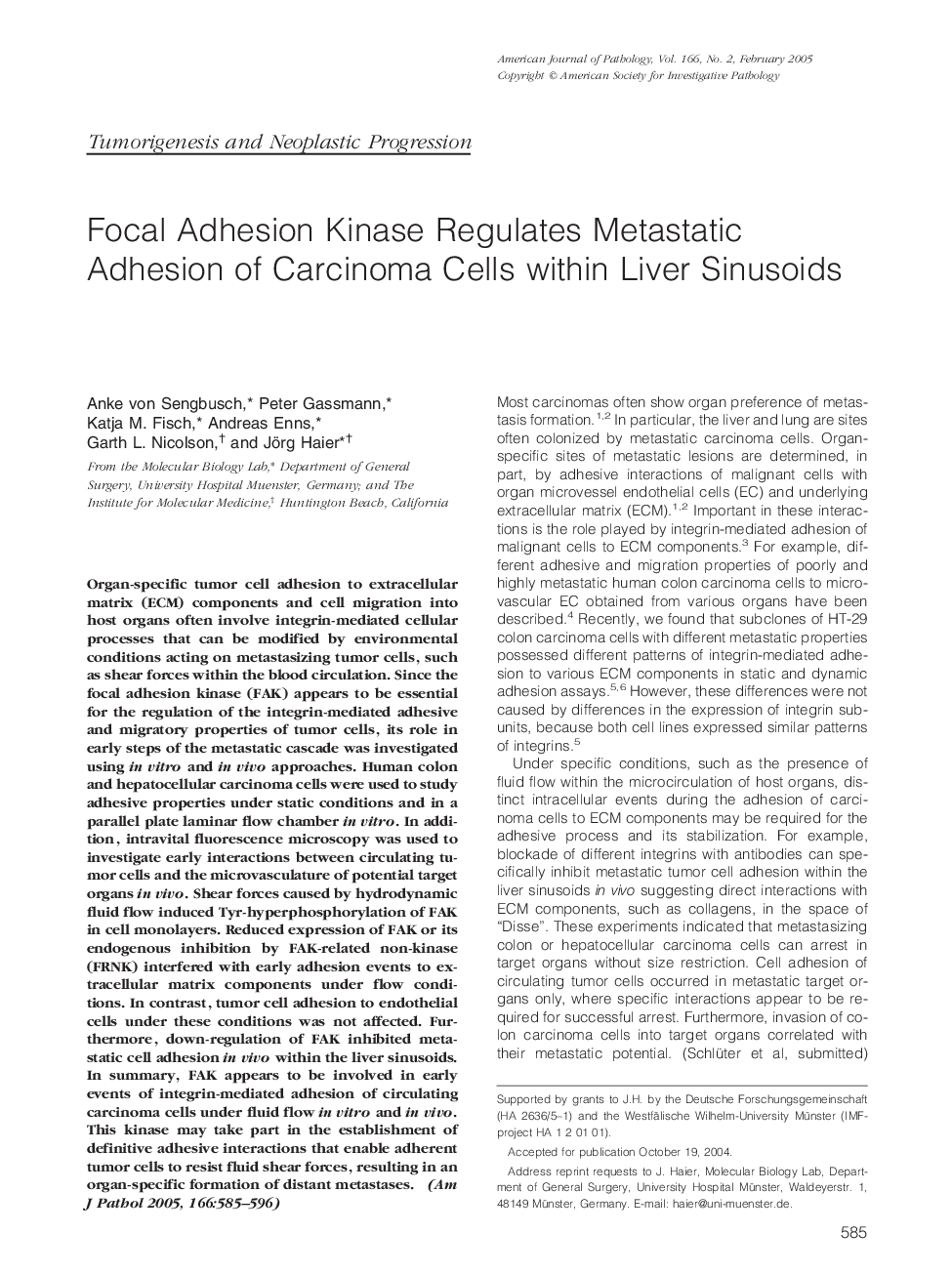| Article ID | Journal | Published Year | Pages | File Type |
|---|---|---|---|---|
| 9943477 | The American Journal of Pathology | 2005 | 12 Pages |
Abstract
Organ-specific tumor cell adhesion to extracellular matrix (ECM) components and cell migration into host organs often involve integrin-mediated cellular processes that can be modified by environmental conditions acting on metastasizing tumor cells, such as shear forces within the blood circulation. Since the focal adhesion kinase (FAK) appears to be essential for the regulation of the integrin-mediated adhesive and migratory properties of tumor cells, its role in early steps of the metastatic cascade was investigated using in vitro and in vivo approaches. Human colon and hepatocellular carcinoma cells were used to study adhesive properties under static conditions and in a parallel plate laminar flow chamber in vitro. In addition, intravital fluorescence microscopy was used to investigate early interactions between circulating tumor cells and the microvasculature of potential target organs in vivo. Shear forces caused by hydrodynamic fluid flow induced Tyr-hyperphosphorylation of FAK in cell monolayers. Reduced expression of FAK or its endogenous inhibition by FAK-related non-kinase (FRNK) interfered with early adhesion events to extracellular matrix components under flow conditions. In contrast, tumor cell adhesion to endothelial cells under these conditions was not affected. Furthermore, down-regulation of FAK inhibited metastatic cell adhesion in vivo within the liver sinusoids. In summary, FAK appears to be involved in early events of integrin-mediated adhesion of circulating carcinoma cells under fluid flow in vitro and in vivo. This kinase may take part in the establishment of definitive adhesive interactions that enable adherent tumor cells to resist fluid shear forces, resulting in an organ-specific formation of distant metastases.
Related Topics
Health Sciences
Medicine and Dentistry
Cardiology and Cardiovascular Medicine
Authors
Anke von Sengbusch, Peter Gassmann, Katja M. Fisch, Andreas Enns, Garth L. Nicolson, Jörg Haier,
